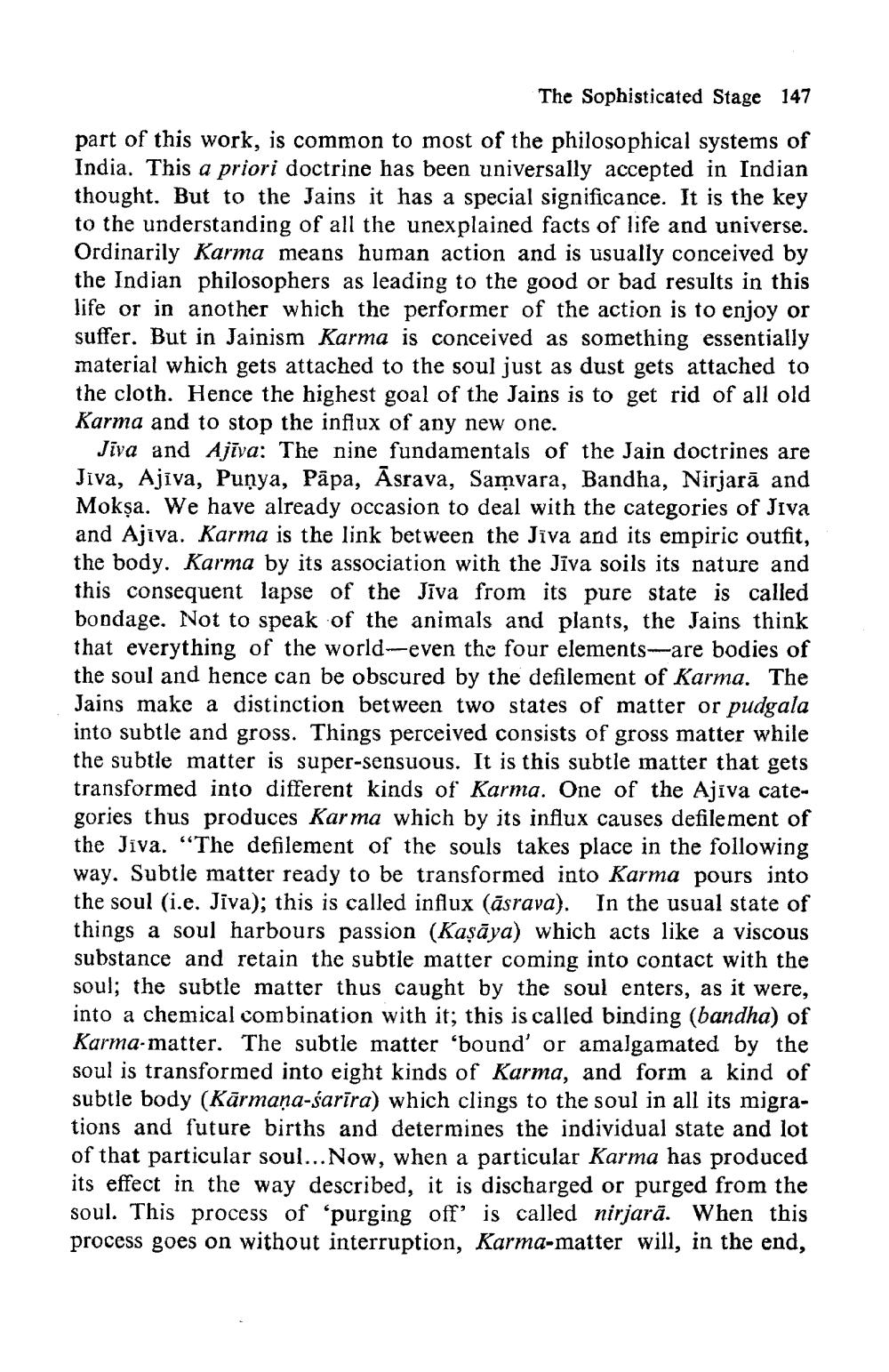________________
The Sophisticated Stage 147
part of this work, is common to most of the philosophical systems of India. This a priori doctrine has been universally accepted in Indian thought. But to the Jains it has a special significance. It is the key to the understanding of all the unexplained facts of life and universe. Ordinarily Karma means human action and is usually conceived by the Indian philosophers as leading to the good or bad results in this
or in another which the performer of the action is to enjoy or suffer. But in Jainism Karma is conceived as something essentially material which gets attached to the soul just as dust gets attached to the cloth. Hence the highest goal of the Jains is to get rid of all old Karma and to stop the influx of any new one.
Jiva and Ajīva: The nine fundamentals of the Jain doctrines are Jiva, Ajiva, Punya, Papa, Asrava, Samvara, Bandha, Nirjarā and Mokşa. We have already occasion to deal with the categories of Jiva and Ajiva. Karma is the link between the Jiva and its empiric outfit, the body. Karma by its association with the Jīva soils its nature and this consequent lapse of the Jiva from its pure state is called bondage. Not to speak of the animals and plants, the Jains think that everything of the world-even the four elements are bodies of the soul and hence can be obscured by the defilement of Karma. The Jains make a distinction between two states of matter or pudgala into subtle and gross. Things perceived consists of gross matter while the subtle matter is super-sensuous. It is this subtle matter that gets transformed into different kinds of Karma. One of the Ajiva categories thus produces Karma which by its influx causes defilement of the Jiva. “The defilement of the souls takes place in the following way. Subtle matter ready to be transformed into Karma pours into the soul (i.e. Jiva); this is called influx (āsrava). In the usual state of things a soul harbours passion (Kaşāya) which acts like a viscous substance and retain the subtle matter coming into contact with the soul; the subtle matter thus caught by the soul enters, as it were, into a chemical combination with it; this is called binding (bandha) of Karma-matter. The subtle matter 'bound' or amalgamated by the soul is transformed into eight kinds of Karma, and form a kind of subtle body (Kārmana-sarīra) which clings to the soul in all its migrations and future births and determines the individual state and lot of that particular soul... Now, when a particular Karma has produced its effect in the way described, it is discharged or purged from the soul. This process of 'purging off' is called nirjarā. When this process goes on without interruption, Karma-matter will, in the end,




